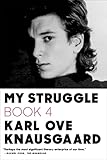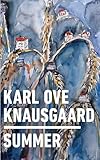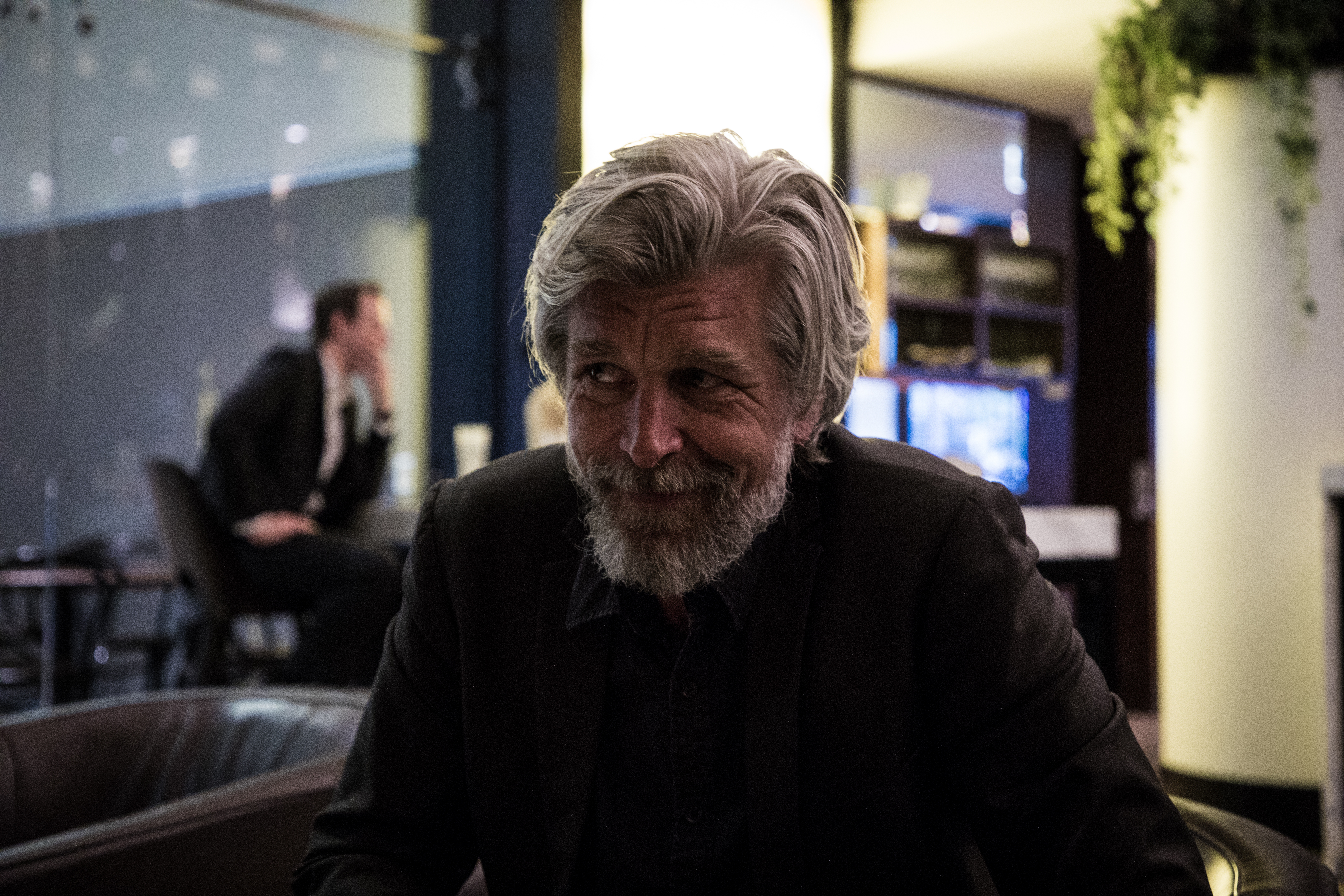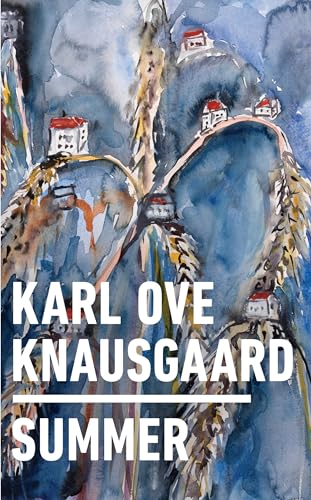“Many writers are very bad communicators in life, but they are great writers. The writers I know are fucked, wrecked, destroyed: Not all of them are aware of it themselves,” Karl Ove Knausgaard says, over a mid-afternoon glass of water at an Auckland hotel. Not just Scandinavian writers? “No, there’s a lot of fucked up people all around the world.”
Despite the unrelenting detail of his 3,600 page “indiscreet” memoir My Struggle, Knausgaard has a rep for being less than forthcoming in conversation. The “existential loner hero with four children,” Zadie Smith said, has “many contradictions.” “I tried desperately to think of something to say. We had to have something in common,” Knausgaard recalled his awkward lunch at Jeffrey Eugenides’s home. “But no, I couldn’t come up with a single topic of conversation.”
 Knausgaard is jaggedly handsome and sharply dressed, six feet, four inches tall and firm of handshake. Scandinavia’s leading literary figure of the last decade has things to say, seasoned with gesture and glance. He can be minimalist with his responses, though: Some questions and observations elicit “Yeah” or “Yeah. That’s true,” accompanied by a nod, a raised eyebrow, or─most tellingly—an affirming smile or laugh. Knausgaard is a fine exemplar of Scandinavia’s dry, deadpan humor. In My Struggle, he can be very funny. He writes about being a teenager doing a creative writing course, surreptitiously looking at Peter Paul Rubens and Eugène Delacroix nudes in a library art book. The comedy of trying to get laid for the first time, and dealing with premature ejaculation. And writing graffiti like “U2 stops rock.”
Knausgaard is jaggedly handsome and sharply dressed, six feet, four inches tall and firm of handshake. Scandinavia’s leading literary figure of the last decade has things to say, seasoned with gesture and glance. He can be minimalist with his responses, though: Some questions and observations elicit “Yeah” or “Yeah. That’s true,” accompanied by a nod, a raised eyebrow, or─most tellingly—an affirming smile or laugh. Knausgaard is a fine exemplar of Scandinavia’s dry, deadpan humor. In My Struggle, he can be very funny. He writes about being a teenager doing a creative writing course, surreptitiously looking at Peter Paul Rubens and Eugène Delacroix nudes in a library art book. The comedy of trying to get laid for the first time, and dealing with premature ejaculation. And writing graffiti like “U2 stops rock.”

 Knausgaard is attracted to New Zealand (and the Auckland Writers Festival) by the remoteness and the similarities with his native Norway. “The fjords look the same.” His frankness writing about everyday challenges through My Struggle’s six volumes and the Seasons Quartet─someone close to you being seriously depressed or an alcoholic─resonates with many readers worldwide. “The loving care she sought was bottomless,” he writes of his Swedish ex-wife’s depression in Spring.
Knausgaard is attracted to New Zealand (and the Auckland Writers Festival) by the remoteness and the similarities with his native Norway. “The fjords look the same.” His frankness writing about everyday challenges through My Struggle’s six volumes and the Seasons Quartet─someone close to you being seriously depressed or an alcoholic─resonates with many readers worldwide. “The loving care she sought was bottomless,” he writes of his Swedish ex-wife’s depression in Spring.
Spring, and its lyrical descriptions of nature─“the smell of wet snow in winter,” “the beauty of the world means nothing if you stand alone it”─aims to inspire. “The great and terrifying beauty does not abandon us, it is there all the time,” Knausgaard concludes, “in the sun and the stars, in the bonfire and the darkness.” He is passionate when asked to elaborate about Spring’s message. “Life can be incredibly hard, life can be incredibly difficult, but it’s always worth living. That’s the book essence … Writing a novel is nothing other than making a place where it’s possible to say something simple and true. That message is such a true thing, it’s very banal too, you need a novel to say it so then it becomes true, you understand what it is.”
The 49-year-old father of four says Spring is especially for his youngest daughter, who was in utero when her mother attempted suicide. “It was such a fantastic, idyllic summer. The sun was shining everyday. The children were laughing and swimming. My then-wife was so depressed that she was in bed all the time, and drew all the energy in there. It was so hard to understand, how is this possible to be so disconnected from the world? To not see that happiness and joy, that it just does not mean anything. I have had friends and people I know been depressed and kill themselves. If you just stay there for three more weeks it would be OK. Your life would have been better.”
Knausgaard confides that he himself can still find life a profound struggle. “Life is so hard that you think, ‘what’s the use? Why should it be so fucking difficult, everything?’ I want my daughter to know that life is always worth living.”

 Humor is one of the things that can make life worth living, the drummer and soccer enthusiast agrees. “Books Four and Five are especially funny to me, tragic but in a funny way. It’s a deadpan humor. I have friends who think Book Four is the most terrible thing they ever read because they identify so much with it they don’t see the humor. My editor always says to me: In life and in writing, take one step aside and everything looks differently. And humor is that step. When you are there, it’s not funny at all, but it is funny. And it was fun to write about.”
Humor is one of the things that can make life worth living, the drummer and soccer enthusiast agrees. “Books Four and Five are especially funny to me, tragic but in a funny way. It’s a deadpan humor. I have friends who think Book Four is the most terrible thing they ever read because they identify so much with it they don’t see the humor. My editor always says to me: In life and in writing, take one step aside and everything looks differently. And humor is that step. When you are there, it’s not funny at all, but it is funny. And it was fun to write about.”
 In Summer─among odes to “Barbecue,” “Dogs,” “Ice Cream,” “Bicycle,” and “Repetition”─he praises Monty Python. “A [teenage] revelation,” he adds. Further comedies enjoyed include Louis-Ferdinand Céline and Seinfeld. Like Seinfeld, My Struggle is about everything, though it has been said to be about nothing? “Yeah, that’s true. I’ve also thought that about Seinfeld, that there is a relation somehow,” Knausgaard smiles.
In Summer─among odes to “Barbecue,” “Dogs,” “Ice Cream,” “Bicycle,” and “Repetition”─he praises Monty Python. “A [teenage] revelation,” he adds. Further comedies enjoyed include Louis-Ferdinand Céline and Seinfeld. Like Seinfeld, My Struggle is about everything, though it has been said to be about nothing? “Yeah, that’s true. I’ve also thought that about Seinfeld, that there is a relation somehow,” Knausgaard smiles.
Though his English publishers describe My Struggle as autobiographical novels, the self-dubbed workaholic (“writing to escape myself”) says that they are “novelized autobiographies,” poetic truth. Literature should go for the hurt and fear and be ruthless, Knausgaard adds. “You’re not a real writer until you have enemies.”
 My Struggle: Six, released in English translation during September, caused controversy in Scandinavia for its coverage of Adolf Hitler and Anders Breivik. Knausgaard—now in a relationship with his U.K. publisher Michal Shavit─counters that he dislikes Sweden’s journalistic and academic cultures. “It’s so monological. It’s very one-sided. I wrote an essay about it called “In the Land of the Cyclops.” There’s a monopoly of meanings. If you have an opinion outside of that it’s impossible. I’m being compared to Nazism and Breivik because of that. It’s very different than Norway. My English is not good enough to explain. You can see it now in the crisis about the Swedish [Nobel] Academy. That’s a very interesting thing that’s happening. It’s only one version [of events] that’s dominating. There are other possible versions, but they’re just not present.”
My Struggle: Six, released in English translation during September, caused controversy in Scandinavia for its coverage of Adolf Hitler and Anders Breivik. Knausgaard—now in a relationship with his U.K. publisher Michal Shavit─counters that he dislikes Sweden’s journalistic and academic cultures. “It’s so monological. It’s very one-sided. I wrote an essay about it called “In the Land of the Cyclops.” There’s a monopoly of meanings. If you have an opinion outside of that it’s impossible. I’m being compared to Nazism and Breivik because of that. It’s very different than Norway. My English is not good enough to explain. You can see it now in the crisis about the Swedish [Nobel] Academy. That’s a very interesting thing that’s happening. It’s only one version [of events] that’s dominating. There are other possible versions, but they’re just not present.”
Knausgaard (recently in The Other Munch) is currently adapting his debut novel Out of This World for cinema, and greatly likes films such as Ruben Ostlund’s Force Majeure and The Square. He is intrigued by Lars Von Trier’s serial killer movie, The House That Jack Built. “One hundred people walking out [at Cannes debut]. I think he’s a genius, absolutely brilliant. I hope I will never meet him.” He double-checks a new Von Trier quote on his phone: “‘I’ve never killed anyone myself. If I do, it will have to be a journalist.’” That sly smile again. “I don’t think he means journalists like you.”
Photos: James Black






